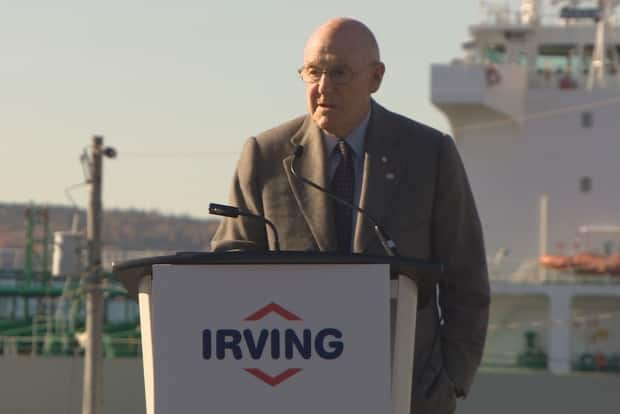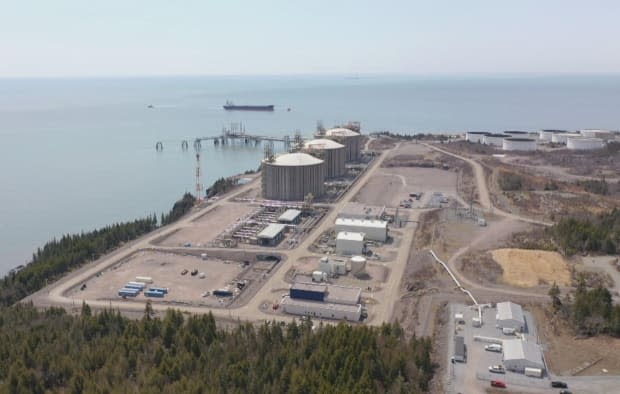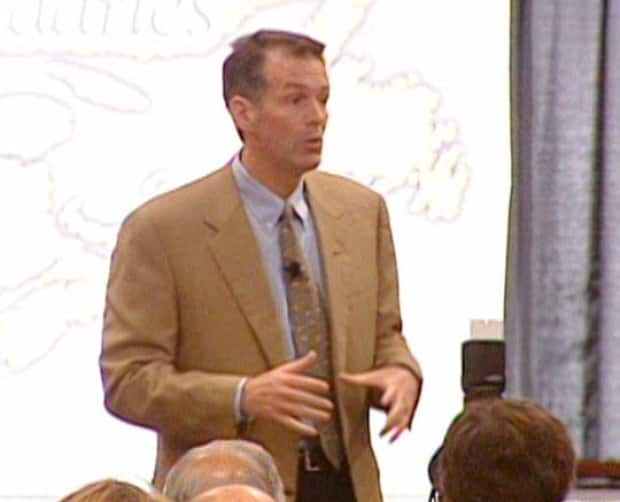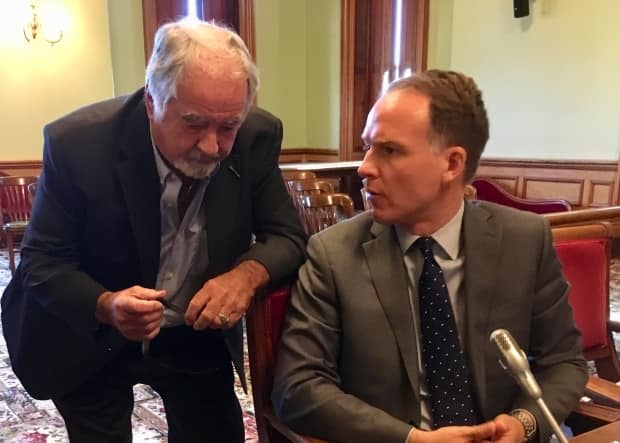Irving Oil had $250-million profit when it won tax break from city and province


Irving Oil raked in a quarter of a billion dollars in profits in the same year it persuaded Saint John city council and the New Brunswick government to hand it a 25-year tax break, leaked documents show.
The company made $250.7 million in 2005, a year in which Saint John capped Canaport LNG's property tax bill at $500,000.
The cost to the city was estimated at $112 million over a quarter-century.
The tax break required special provincial legislation, which Bernard Lord's Progressive Conservative government passed later in 2005.
The huge profits were not known publicly, and Kenneth Irving, CEO of Irving Oil at the time, argued the tax break was make-or-break for the LNG project.
"Companies are putting a lot of money at risk," he told the Telegraph-Journal newspaper in 2005.
"They have to be sure they are landing on the right beach when they are investing this kind of capital."

The tax break was repealed in 2016, and Irving Oil sold its ownership stake in the terminal to its partner, the Spanish energy company Repsol, last year.
The confidential Irving financial records show the oil company was such a resilient money-maker from 2005 to 2009 that it managed to turn a healthy profit even during the darkest days of the global economic crash in 2008.
The company has "demonstrated an ability to maintain attractive margins and profitability, notwithstanding the cyclical nature of the refining and marketing business," London tax and trust lawyer Andrew Hine wrote in a leaked 2010 affidavit filed in court in Bermuda.
Company maintained profit during economic crisis
The 2008 crisis saw major U.S. banks collapse and the price of a barrel of oil plunge from $140 in June 2008 to less than $40 in December.
Even so, Irving Oil recorded a $111.2 million profit.

Its debt-to-total-capitalization ratio — a measure of what it owes compared to the value of what it owns — also continued to improve during the financial turmoil of 2008.
The figures come from a confidential "private placement memorandum" the company used to borrow $150 million on financial markets in 2009. It includes five years' worth of detailed financial data on the company.
Hine used the memo in a 2010 evaluation of Irving Oil's financial prospects during court proceedings to split the Irving empire, founded a century ago by K.C. Irving, Arthur's father.
A lawyer with the U.K.-based firm Taylor Wessing, Hine was appointed by a Bermuda court to represent Arthur Irving's non-adult grandchildren.
The Hine affidavit and the private placement memo are part of a cache of millions of pages of documents leaked to German newspaper Süddeutsche Zeitung and shared with the International Consortium of Investigative Journalists.
Many of the documents, known as the Paradise Papers, are from Appleby, a Bermuda-based global offshore services law firm that had Irving Oil among its clients.
'Impressive history of revenue growth'
The oil company was "a soundly managed and successful business" with "an impressive history of revenue growth," Hine said in the confidential affidavit.
Even in a worst-case scenario, Irving Oil would be able to pay its debts and future obligations, he said — making it a reliable earner for Arthur Irving's grandchildren as the family conglomerate was divided three ways, he concluded.

Under the three-way split, Arthur's family would get two-thirds ownership of Irving Oil, and his brother Jack Irving's family would get one-third.
The two brothers would give up their stakes in other Irving companies controlled by brother J.K. Irving and his family.
There were worries that while J.K.'s family would get full ownership of a diversified portfolio of companies — including forestry, trucking, food and shipbuilding — Arthur's would be reliant solely on oil.
The Bermuda court overseeing the division appointed Hine to assess whether that was in the best interests of Arthur's grandchildren.
Hine used confidential financial statements and the private placement memorandum, which contains detailed data for the years 2005 to 2009.
The memo showed Irving Oil had assets worth $4.5 billion in June 2009 and revenues of $4.6 billion in the first six months of 2009.
Annual net losses reported only twice
In fact, the company suffered net losses in only two years in its history, 1977 and 1978, "which it attributes to unusually poor market conditions and the impact of a refinery expansion," Hine says in his affidavit.
Irving biographer John DeMont wrote in his 1991 book Citizens Irving that refinery capacity in Eastern Canada exceeded demand for gasoline by 70 per cent in 1977, reducing profits in the sector.
In 2018, Irving Oil announced that "the Arthur Irving Family Trust" had bought the one-third stake in the oil company owned by Jack Irving's branch of the family.
Irving Oil's Saint John refinery is Canada's largest, refining 300,000 barrels of crude oil per day, roughly 15 per cent of the country's total capacity in 2009, according to the memo.
WATCH | Learn more about what CBC and Radio-Canada found in leaked documents about the Irving family's use of tax havens:
In the first six months of 2009, the refinery accounted for $136.7 million, or 45 per cent, of Irving Oil's total earnings, the documents say.
The company did not respond to a request for a comment on the contents of the Hine evaluation, including the profit figures.
In 2019, Irving Oil executive Andrew Carson told the New Brunswick legislature's law amendments committee that it was a myth the company got off easy on paying taxes.

Carson was pressed by Gerry Lowe, the Saint John Harbour Liberal MLA at the time, about corporate profits and whether the refinery made "good money" from its various products.
"It would vary through the year, in all honesty," Carson replied. "There are generally times in the year when certain products are in higher demand."
In 2015, it was revealed in an unrelated federal tax case in Alberta that Irving was charging its partner and co-investor in Canaport LNG, Repsol, $12 million a year in rent at the facility.
That, and a guaranteed profit for Irving Oil in their agreement, allowed the company to remain in the black with the LNG terminal, even while Repsol lost money.


